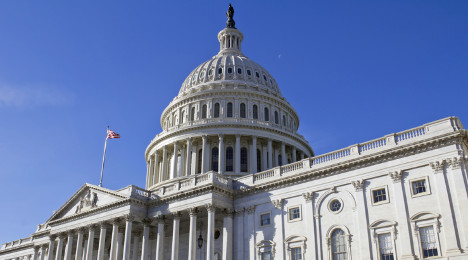House lawmakers pepper Cordray over dealer reserve

By subscribing, you agree to receive communications from Auto Remarketing and our partners in accordance with our Privacy Policy. We may share your information with select partners and sponsors who may contact you about their products and services. You may unsubscribe at any time.
WASHINGTON, D.C. –
Two of U.S. House membesr who are two of staunchest defenders of dealers and how the indirect auto financing model currently operates — one that still includes dealer reserve — peppered the director of the Consumer Financial Protection Bureau who made his semiannual appearance before the Financial Services Committee on Tuesday.
Like many of his fellow lawmakers, Rep. Scott Garrett referenced a series of recent reports from American Banker recapping internal memos and other documents about the CFPB’s use of disparate impact to generate a “tipping point” enforcement action that might discontinue the practice of dealer participation altogether.
The New Jersey lawmaker then directly asked CFPB director Richard Cordray, “Are you working to eliminate dealer reserves?”
Cordray replied with, “We have been working to try to address a practice that we believe is discriminatory, discretionary markups.”
He added that the CFPB is out “not necessarily to eliminate,” dealer participation. “We had an enforcement action (Monday) in which it would limit dealer reserve, not eliminate it. And we think that might be a fair way to try to address the issue,” Cordray went on to say.
What Cordray referenced was the CFPB enforcement action against Fifth Third Bank, which included a mandate to cap dealer markup at either 1.25 percent or 1 percent depending on the length of the vehicle installment contract.
Subscribe to Auto Remarketing to stay informed and stay ahead.
By subscribing, you agree to receive communications from Auto Remarketing and our partners in accordance with our Privacy Policy. We may share your information with select partners and sponsors who may contact you about their products and services. You may unsubscribe at any time.
During a back-and-forth exchange between Garrett and Cordray that had each individual interrupt each other multiple times, the House lawmaker insisted he was asking these questions because “dealers are on the front lines of making these loans.”
Cordray replied with how the Dodd-Frank Act was written that created the CFPB four years ago.
“We have authority in the statute. It doesn’t exempt the auto industry. It exempts auto dealers. It doesn’t exempt auto lenders. We have a responsibility to address auto lenders. We understand we are exempted from addressing auto dealers,” Cordray said.
“Congress drew the statute. I didn’t draw it. I have to live with it. It exempts auto dealers, but gives us responsibility over auto lenders. I’m not sure that makes a lot of sense, but we’re trying our best to observe the lines that Congress drew,” he continued.
“It’s a funny provision in the statute. I’m not sure it’s very logical,” Cordray added.
Before Garrett’s time for questioning expired, Cordray also told the lawmaker that vehicle financing is “made by the auto lender. The auto lender controls the auto lending program.”
And with institutions such as Fifth Third Bank as well as American Honda Finance now restricted on how much dealer markup is allowed, Garrett also questioned whether the CFPB understands the implications on dealerships and their ability to generate revenue by these enforcement actions.
“What I would say is this,” Cordray said, “As we do our work … it does effect auto dealers. I would agree with you on that. That’s why the provision is not very logical.”
Finally, Garrett tried to get Cordray to acknowledge the CFPB’s actions are increasing the consumer costs of making a vehicle purchase based on a wide array of studies from the American Financial Services Association, the National Automobile Dealers Association and other organizations.
“There’s disagreement about that,” Cordray said.
Later during the hearing that lasted more than three hours, Rep. Blaine Luetkemeyer took his turn. The Missouri lawmaker — who has been a part of multiple proposals to modify how the CFPB operates — asked, “Why are you getting involved in the general competiveness of the marketplace?”
Again, Cordray referenced back to this week’s action involving Fifth Third Bank.
“This is not some sort of philosophical thing we’re deciding to do because we have some kind of ideology,” Cordray said.
“This is the result of an enforcement action because of an investigation by us and the Justice Department. We’re not solo on this. The Justice Department has much more lengthy experience with this than us with an investigation about potential discrimination,” he continued.
“There was back and forth with that entity and various other entities in which it was determined this was a reasonable result to address the problem and yet allow the entity to move forward and continue to lend aggressively to customers,” Cordray went on to say.
The entire hearing featuring Cordray can be watched in the window at the top of this page.


